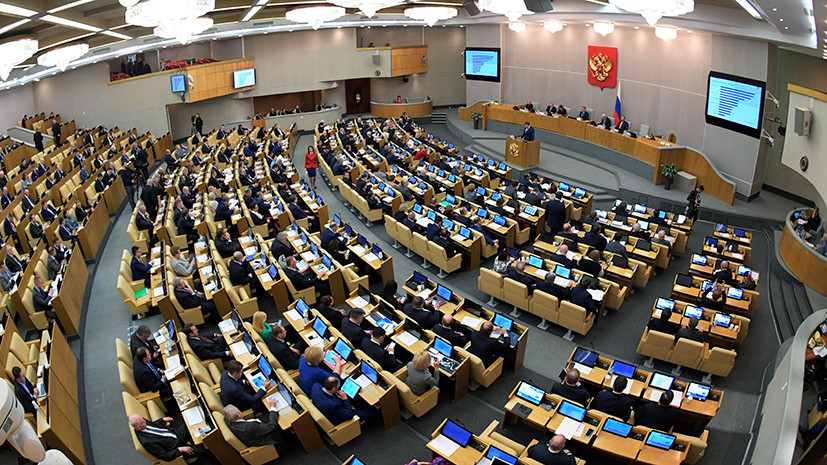The State Duma of Russia imposed a ban on the resale of citizens' debts for housing and communal services for collectors. On July 16, the deputies in the third and final reading adopted corresponding amendments to the housing code of the Russian Federation and a number of other laws, in particular, to the law “On microfinance activity and microfinance organizations”.
"The law establishes a ban on the assignment of rights (claims) for the return of overdue debts of citizens to pay for housing and utilities to third parties," - said in a statement on the website of the State Duma.
As the Chairman of the State Duma Vyacheslav Volodin explained, in accordance with the new law, the right to recover the debts of Russians in the housing and utilities sector can now be inferior only to professional participants in the housing and utilities market: management companies, housing cooperatives, housing cooperatives or resource-supply organizations.
“We believe it would be right to ban the transfer of citizens' debts in housing and public utilities. This problem, unfortunately, exists: people are calling, especially the elderly, with threats, including the use of physical force. Citizens regularly turn to the deputies with the requirement to take appropriate decisions. With the bill ... we are introducing a direct ban on the transfer to the collectors of public debt for housing and communal services, ”the State Duma Speaker noted earlier.
- © Vladimir Fedorenko / RIA News
The draft law, which prohibits the transfer of debts on housing and communal services to collectors, was submitted to State Duma deputies in early March 2019. One of the authors of the draft law, the Deputy Chairman of the State Duma, Irina Yarovaya, emphasized that only individual work with debtors and collection of debts in a court of law guarantee repayment of debts and respect for the rights and interests of all parties.
“The law protects the rights of all homeowners, because today the transfer of debt obligations to collectors does not remove the total debt, but, on the contrary, saves it. Ultimately, the debts that were sold to collectors laid a burden on other neighbors, ”said Yarovaya.
The State Duma Speaker added that there is “an imaginary appearance that the actions of the collectors seem to be helping other homeowners deal with debtors.” “On the contrary, the debt is sold to collectors at a lower price, and part of the amount does not automatically come in as payment for the services consumed,” the parliamentarian stresses.
According to the author of the bill, the document includes a number of socially important amendments, due to which the debt repayment at the expense of neighbors will become impossible, and debt collection will be carried out exclusively through the courts.
"In the first place, including in cases of recovery of debt obligations, should be placed the legitimate rights and interests of the person, the value of his life and health," - said the Vice-Speaker of the State Duma.
Previously, in a conversation with RT, Deputy Chairman of the State Duma Committee on Housing Policy and Housing and Communal Services, Pavel Kachkaev noted that the ban on attracting collectors to collect debts on housing and communal services would protect citizens from arbitrariness. He also noted that the transfer of the right to collect debts to collectors also leads to additional costs for the organizations that hire them.
“If we attract a collection agency and it takes to execution this debt collection, then, in addition to the danger of threats and blackmail, the collector’s services are also paid. And I’m reminding you that management organizations have only money that goes to pay for housing and communal services, ”explained Kachkaev.
According to the Ministry of Construction, as of the end of 2018, the debt of Russians for housing and communal services reached 1.4 trillion rubles. In turn, the experts of the audit and consulting network FinExpertiza calculated that for each day of the last year the debt of Russian citizens to public utilities increased by an average of 330 million rubles. For 2018, the debts of Russians in the housing and utilities sector increased by 121.2 billion rubles. In 2017, we managed to accumulate less debt - 108.6 billion.
Last year, the fastest growing debts in housing and communal services (if we take absolute values) grew from Muscovites - the debt of residents of the capital to public utilities increased by 10.2 billion. Then go the Moscow Region (6.8 billion), Dagestan (6.6 billion), as well as the Chelyabinsk and Sverdlovsk regions (5.8 and 4.2 billion, respectively).

